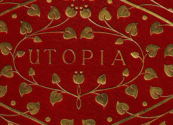Secondary Source for The Concept of Enlightenment
by Aramis Miranda-Reyes
Bronner, Stephen Eric. “Interpreting The Enlightenment: Metaphysics, Tradition and Politics.” Reclaiming The Enlightenment: Toward a Politics of Radical Engagement. New York: Columbia University Press, 2004. ix-16.
“…historical epochs can generate an ethos, an existential stance toward reality, or what might even be termed a “project” uniting the diverse participants in a broader intellectual trend or movement.” – Peter Gay, The Party of Humanity: Essays in the French Enlightenment (1954).
From the very first page of Reclaiming the Enlightenment, Stephen Bronner states his purpose clearly and unambiguously – “What follows is an attempt to reclaim the Enlightenment” – he says. But, we might ask, reclaim it from what? Does the Enlightenment need reclaiming? And what in fact does this reclaiming entail? These are the essential questions Bronner attempts to answer in his text. His quest begins first and foremost by yanking the Enlightenment movement and its participants out of the clutches of what he calls “the late brand of critical theory associated with Dialectic of Enlightenment by Max Horkheimer and Theodor Adorno” (x). In fact he goes as far as stating that to view Enlightenment intellectuals as “utopians or totalitarians is philosophically untenable and historically absurd” (x). And though he recognizes the remarkable power of the work and the enduring effect it has had over the past half-century, the truth is it is “neither a work of history, anthropology, sociology, nor politics” (2). Instead it is an interdisciplinary experiment that resulted from “a period marked by previously unimaginable slaughter of two world wars, the emergence of mass culture, bureaucratic states and…the concentration camp universe” (2). In essence, Horkheimer and Adorno’s seminal work was a product of a particular point in history through which its authors expressed their existential crisis.
As such, Bronner argues, if we are to reconnect with the Enlightenment in a context that is apropos of the 21st century, we first have to set aside the pronouncements of those like Horkheimer and Adorno that characterize it as some sort of a disembodied ideology or “a historical epoch grounded in an anthropological understanding of civilization that, from the first, projected the opposite of progress… [in service of] the totally administered society” (3). Subsequently, we need to understand and acknowledge the invaluable contributions the Enlightenment made to modern political discourse. After all, some of the most important political products and paramount values in the modern world are rooted in the Enlightenment, such as – liberalism, socialism, political liberty, social justice, and cosmopolitanism. Finally, and perhaps most importantly, we are to frame the Enlightenment for what it actually was, a socio-political and intellectual movement set on protesting the status quo and declaring a re- conception of physical and social realities based on new discoveries of the time. As Bronner states “…the philosophes were clear about the basic values underlying their enterprise. They shared a fundamental concern with constricting the exercise of arbitrary institutional power and expanding the realm of individual autonomy” (8). In other words, they were attempting to reform and redress the dogmas of the old feudal order, its prejudices and traditionalism in favor of a more egalitarian approach to government and life.
For that purpose Bronner, much like Enlightenment philosophes did before him, further removes the concept of enlightenment from the language of “pseudo-universalism” he attributes to Horkheimer and Adorno and places it within the vernacular so as to properly allow “the subject under discussion (politics) to define the language in which it is discussed” (5). In other words, he engages the subject of enlightenment in the proper political and linguistic terms so as to situate, identify and clarify the subject (political history) being discussed rather than confusing the issue by “substituting the affirmation of subjectivity, through aesthetic-philosophic criticism” (6). This lack of linguistic engagement with the subject at hand and the inherent separation of politics and philosophy in their critical analysis of the Enlightenment led Horkheimer and Adorno (and other post-modernists of the same ilk) to their two gravest mistakes. First, is their lack of acknowledgement of the simple fact that “different practices and ideals are appropriate to different spheres of activity” and second, they ignored “the institutional preconditions for the free exercise of individual capacities” (6). In simple terms, by refusing to directly engage with the subject of politics by using political terms and political language, Horkheimer and Adorno failed to grasp the essence of the subject and thereby take into account the obstacles existing (conservative and dogmatic) state institutions would form on the way to reforming or “enlightening” western societies at the time. This conception is key to the application of political theory and philosophy at any given time.
Ultimately, Bronner’s reclamation project is as much a reconstitution of the Enlightenment movement, in and away from the generic philosophical musings of Horkheimer and Adorno as well as a concrete recontextualization of its importance to modern political thought. Its ideals, its achievements and its failures on the whole still provide the template from which modern Western democratic thought still functions. In a nutshell, reclaiming the Enlightenment must be accomplished based on the political and social realities of the time, the movement’s ideals and what it essentially tried to achieve. Two of the best examples of Enlightenment’s goals are: “Attack upon received traditions, popular prejudices, and religious superstitions” (2) and decensoring of “…intellectuals who debated first principles in public, who introduced freelance writing, who employed satire and wit to demolish puffery and dogma, and who were preoccupied with reaching a general audience of educated readers…(5)” There is no question that such aspirations are still very much relevant today.


